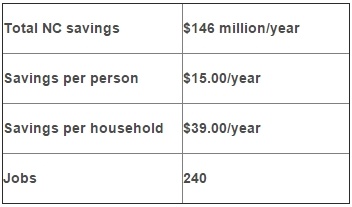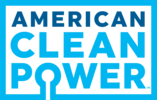News Release from American Clean Power Association (ACP)
Wind Industry Profile of
Report Excerpt - Koch Study in North Carolina still suffers from same errors, plus some new
Randy Simmons, the “Charles G. Koch Professor” at Utah State University and major recipient offunding from the fossil fuel industry billionaires, has produced another study attacking the benefits of state pro-renewable energy policies. The latest Koch attack replicates many of the errors from their Kansas attack, plus making some new ones as well. When major errors in the Koch study’s methods are corrected, it once again confirms that state Renewable Energy Portfolio Standards (RPS) like those in North Carolina save consumers tens of millions and creates hundreds of jobs.
The first part of the North Carolina study suspiciously departs from the methodology the authors used for their Kansas study, opting for an even more flawed method. Interestingly, using the Kansas methodology with updated wind costs for North Carolina1 would have indicated renewable energy will save consumers hundreds of millions and create hundreds of jobs in North Carolina if the RPS is met.

Instead of using that method from their Kansas study, the authors instead created an entirely new method for North Carolina. This method starts off on the right foot, correctly noting that regulatory filingsby utilities in North Carolina document that the state RPS has had a minimal impact on consumer electricity costs, at under $5 per residential customer per year, or around 40 cents per monthly electric bill (these figures would likely indicate net savings if the full economic benefits of renewable energy were taken into account).
However, the authors then use three mathematical tricks (assuming a compound growth rate instead of a linear growth rate, beginning the RPS trend two years before the main tier of the RPS actually began to falsely make it appear that costs have been on an upward trajectory so far, and then multiplying the numbers by a factor of 4 even though historical data do not support doing so) to reach the flawed assumption that those costs will increase by between 650 percent and 2250 percent by the year 2021. As the chart below, and further charts at the bottom of this post show, the Koch study essentially assumes that costs will skyrocket contrary to the historical trend.

The second part of the North Carolina study is repeated from the Kansas study, including its fatal flaw: using a statistical trick to blame the Great Recession on renewable energy. As with the earlier Koch study, their statistical analysis selectively uses the last date an RPS was updated, not the initial date when an RPS was enacted. This has the impact of clustering 11 of the 31 state RPS “enactment dates” into the November 2006 to November 2008 time period, which effectively makes it appear in their analysis that RPS policies caused the Great Recession in the fall of 2008. The authors are even forced to note that their analysis shows the economic decline typically occurs nearly a year prior to the enactment of an RPS, though they quickly change the subject without addressing the fatal problem that it is impossible to blame state RPS policies for causing economic downturns that occurred nearly a year prior.

The authors’ claims based on their second methodology are even directly contradicted by their claims from their first methodology. Using their Great Recession statistical trick, the authors absurdly claim that family income in North Carolina has already fallen by $3,870 per year due to the RPS, even though in their first methodology they acknowledge that the cost so far has been under $5 per year. The authors do not attempt to reconcile how their claimed cost is nearly 1,000 times higher than the actual cost, and 100 times higher than the RPS cost cap that is included in North Carolina law. Even with their grossly flawed first method, the authors were only able to get to 1/100th of the cost they claim from their second method.

Instead of relying on a grossly flawed attack piece, North Carolina should look to the dozens of peer-reviewed studies by independent grid operators, state governments, and academic experts that have found that wind energy benefits consumers by reducing electricity prices.Just last week, DBL Investors released a detailed analysis confirming that states with the most renewable energy have lower electricity prices than other states, and that states with RPSs have seen lower electricity price increases than states without RPSs.
Below are further charts and a table illustrating how much the Koch RPS cost projections depart from the historical trend documented in state regulatory filings and acknowledged in their own paper.

1 The same Department of Energy study that the authors used for Kansas shows that North Carolina wind energy provides the electric system with $57/MWh of economic value on average. Using the authors’ Kansas methodology, this $57/MWh value is greater than the cost of recent wind purchases in the Eastern U.S. ($43.01 and $53.89 per Megawatt-hour in the Great Lakes and Northeast, respectively) indicating that purchasing wind energy will reduce electricity prices, creating the jobs and economic benefits calculated in the first table.
To receive more information on this article, our Newsletter or find out more about what w3.windfair.net has to offer, please, do not hesitate to contact Trevor Sievert at ts@windfair.net.
Please don't forget to follow us on Twitter: w3.windfair.net on Twitter
w3.windfair.net is the largest international B2B internet platform in wind energy – ultimately designed for connecting wind energy enthusiasts and companies across the globe.
- Source:
- American Wind Energy Association
- Author:
- Trevor Sievert, Online Editorial Journalist / By AWEA Staff / Michael Goggin
- Email:
- windmail@awea.org
- Link:
- www.awea.org/...
